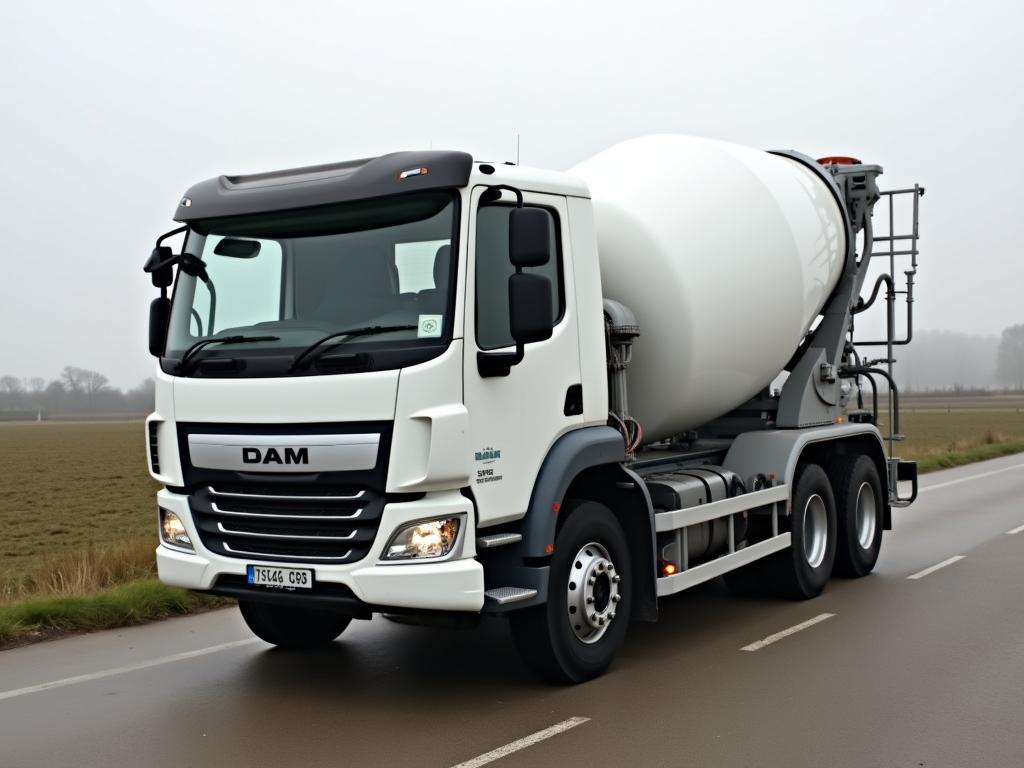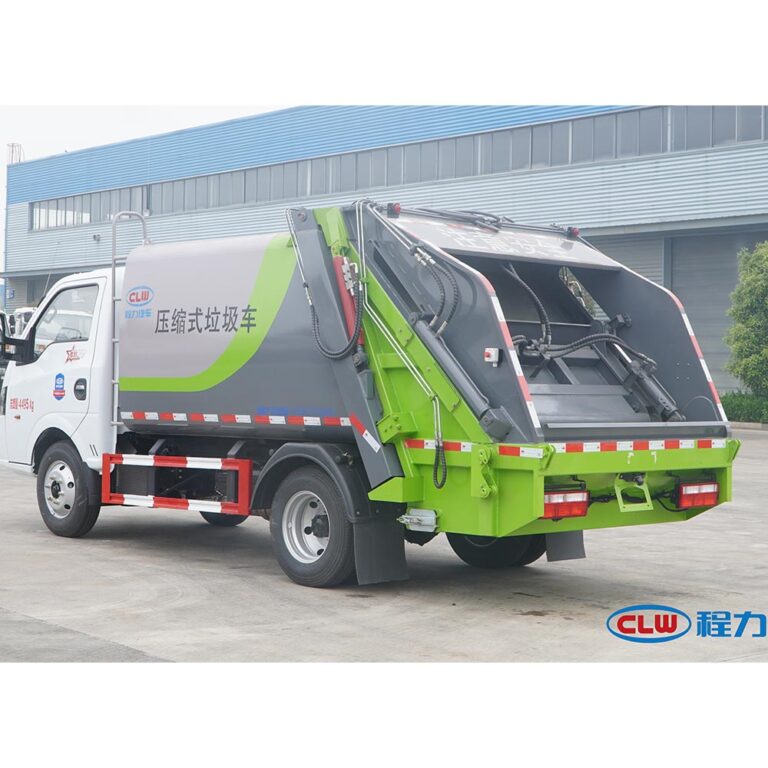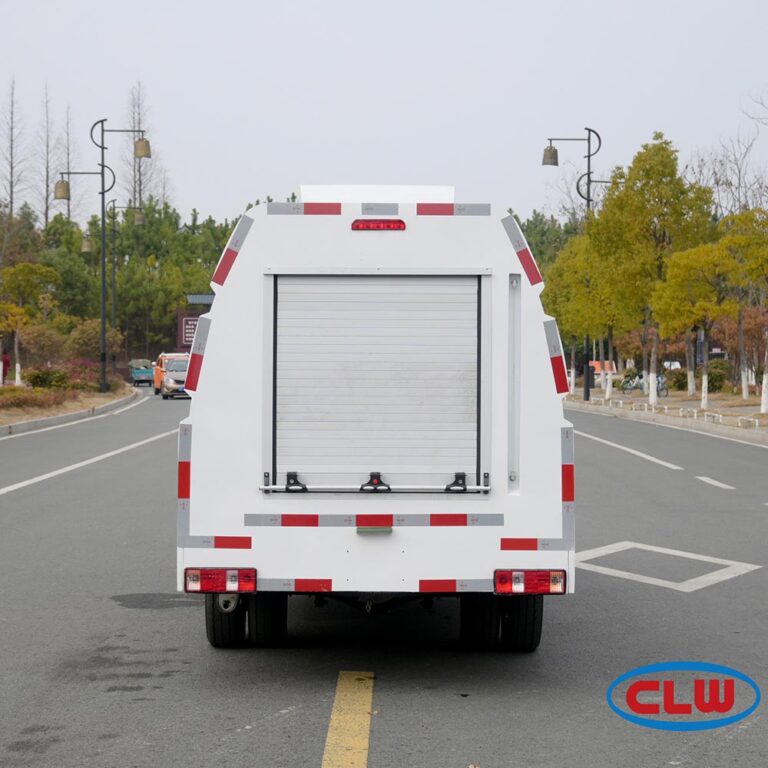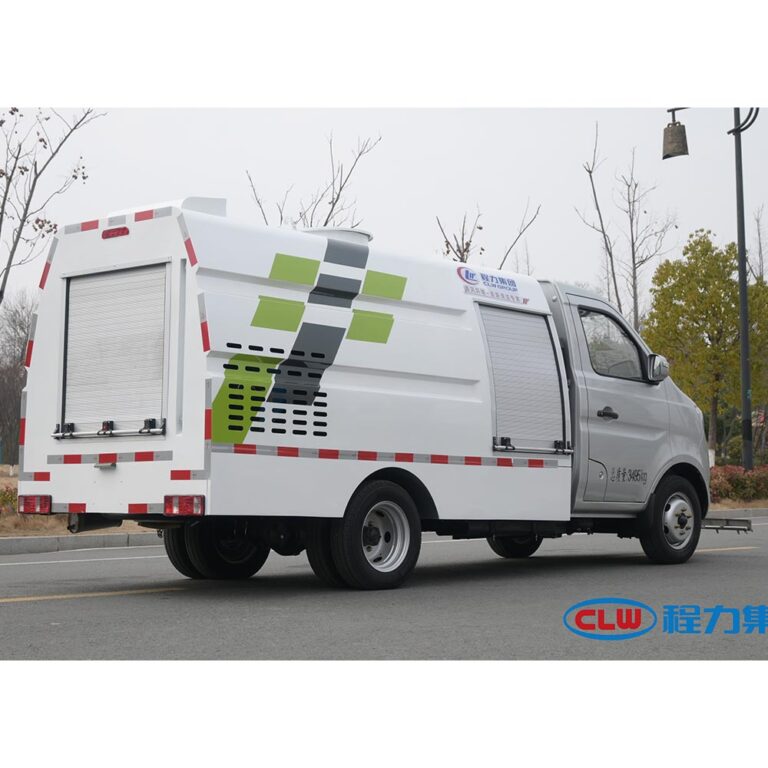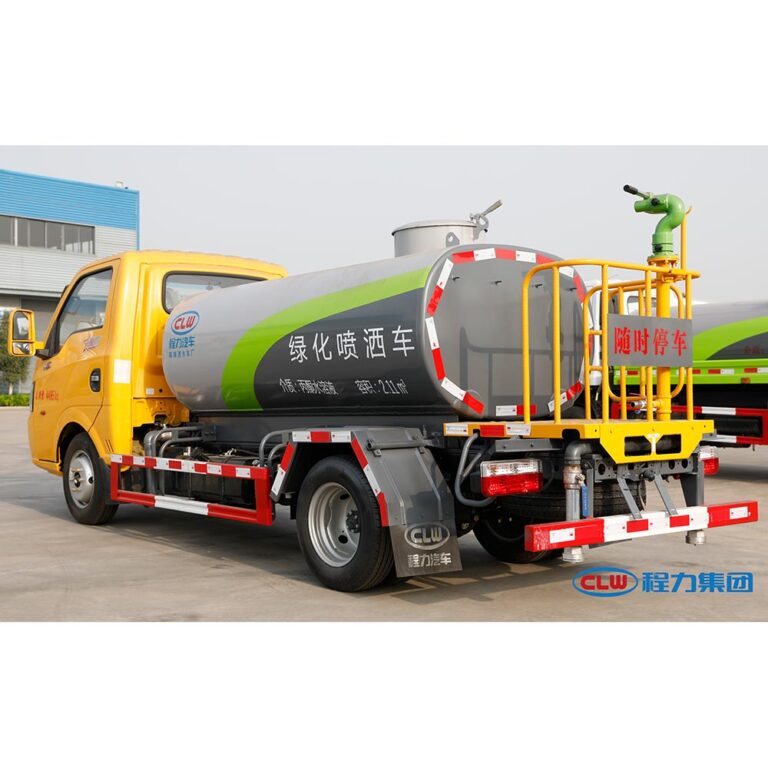-
Parque Industrial del Automóvil de Chengli
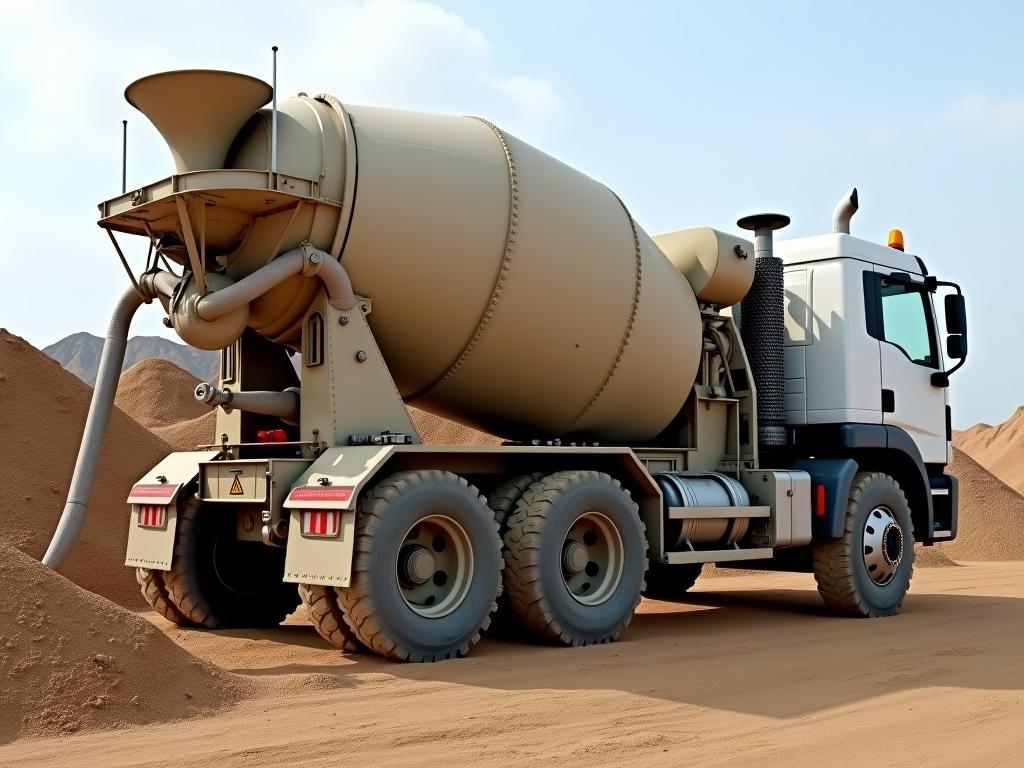
cuánto cemento cabe en un camión hormigonera
¿Cuántas yardas de hormigón puede contener un camión hormigonera? Guía completa para profesionales de la construcción
Este artículo ofrece una inmersión profunda en el mundo de los camiones hormigonera, explicando cuánto hormigón pueden contener, los diferentes tipos disponibles y por qué este conocimiento es crucial para cualquier persona en la industria de la construcción. Tanto si eres un profesional experimentado como si eres nuevo en este campo, esta guía te proporcionará la información esencial que necesitas para tomar decisiones informadas para tu próximo proyecto de hormigón.
Índice
1. ¿Cuáles son los distintos tipos de camiones hormigonera?
En el mundo del hormigón, existen principalmente dos tipos de camiones utilizados para el reparto de hormigón: el camión hormigonera estándartambién conocido como camión de premezclado o mezclador en tránsito, y el camión de hormigón volumétricotambién llamado mezcladora móvil. Como planta líder en la fabricación de camiones de cemento, nos especializamos en la producción de . Cada tipo de camión sirve para un propósito diferente y tiene capacidades únicas. El sitio camión hormigonera estándar transporta hormigón premezclado de un planta de lotes a la obra. Estos camiones tienen grandes tambores giratorios, también llamados tambores mezcladoresque continuamente mezclar el hormigón para evitar que se endurezca durante el transporte. Volumétrico Los camiones, por su parte, transportan las materias primas -cemento, agua y agregado-por separado y mezclar hormigón in situ.
Comprender estas diferencias es crucial para empresas de hormigón y profesionales de la construcción. Elegir el derecha puede repercutir significativamente en la eficacia y el coste del proyecto. Aquí es donde nuestra experiencia como camión hormigonera fabricante. Por ejemplo, un hormigonera volumétrica es ideal para proyectos que requieren diferentes tipos de mezclas de hormigón o lugares de trabajo remotos, lejos de proveedores de hormigón. Nuestra Camión repostador Furika Depósito de combustible de 8,5 m³, motor de 170 CV es popular entre muchas pequeñas empresas de hormigón premezclado.
2. ¿Cuánto hormigón puede contener un camión estándar?
A camión hormigonera estándar normalmente puede contener alrededor de 10 yardas cúbicas de hormigón, son unos 270 pies cúbicos. Sin embargo, el cantidad de hormigón a camión hormigonera puede sostener puede varían bastante en función de su tamaño y diseño. Algunos camiones de hormigón estándar puede transportar hasta 12 yardas cúbicasmientras que los camiones más pequeños pueden contener tan sólo 3 yardas cúbicas. Es importante tener en cuenta que restricciones de peso a menudo limitan la capacidad del camiónlo que significa que, aunque un camión físicamente pudiera contener más, es posible que no pudiera transportar una carga completa legalmente. He aquí un ejemplo de nuestra gama de productos: Camión cisterna de agua Chengli D9 Cisterna de 12,37 m³. Por ejemplo, un camión hormigonera que sostiene físicamente 10 yardas cúbicas sólo podrán llevar 8 cúbicos mantenerse dentro de la legalidad límites de pesoprevenir daños en las carreteras. Algunos proveedores de hormigón puede cobrar un recargo si no pide el volumen máximo permitido para el camión.
He aquí una tabla sencilla para ilustrarlo:
| Tamaño del camión | Capacidad física | Capacidad jurídica (típica) |
| Pequeño | 3 yardas cúbicas | 2,5-3 yardas cúbicas |
| Estándar | 10 yardas cúbicas | 8-10 yardas cúbicas |
| Grande | 12 yardas cúbicas | 10-12 yardas cúbicas |
| Extra grande | 15 yardas cúbicas | 12-14 yardas cúbicas |
También es importante recordar que 1 yarda cúbica de hormigón equivale aproximadamente a 81 cubos estándar de 5 galones, o unos 40 carretilla cargas. Cuando te preguntes cuántas yardas de hormigón están en un camión, ¡conocer estas conversiones puede ser útil!
3. ¿Qué es una mezcladora volumétrica y en qué se diferencia de un camión de premezclado?
A mezclador volumétricotambién conocido como móvil hormigoneraes un especialista camión hormigonera que transporta los ingredientes individuales del hormigón: cemento, arena, agregadoy el agua, en compartimentos separados. A diferencia de un camión de premezclado que suministra hormigón premezclado desde un planta de lotes, a mezclador volumétrico mezcla el hormigón in situ, lo que permite producir hormigón fresco cuando es necesario. Esto significa que usted sólo paga por el volumen de hormigón que utilices. Esta función hace que hormigón volumétrico ideal para proyectos en los que cantidad de hormigón necesario es incierto o cuando se requieren diferentes diseños de mezcla durante el proyecto concreto.
Aquí tienes una tabla comparativa:
| Característica | Camión de premezclado | Mezclador volumétrico |
| Lugar de mezcla | Planta de lotes | En el sitio |
| Mezcla de hormigón | Fijado en la fábrica | Ajustable in situ |
| Residuos | Posibilidad de restos de hormigón | Residuos mínimos |
| Coste | Puede ser mayor debido a los posibles residuos | Generalmente inferior para cantidades precisas |
| Plazo de entrega | Más rápido para mezclas estándar | Más lento debido a la mezcla in situ |
| Personalización de la mezcla | Limitado a las mezclas disponibles | Altamente personalizable |
Volumétrico camiones ofrecen una mayor flexibilidad, especialmente para proyectos más pequeños o lugares remotos. También permiten control de calidad desde el mezcla de hormigón puede ajustarse sobre la marcha. Por ejemplo, puede ajustar el resistencia a la compresión según sea necesario. A continuación se muestra una imagen de un mezclador volumétrico en funcionamiento:
4. ¿Cómo afectan las restricciones de peso al suministro de hormigón?
Restricciones de peso desempeñan un papel crucial en entrega de hormigón. Incluso si un camión hormigonera tiene una gran capacidad en yardas cúbicasNo obstante, es posible que no pueda transportar una carga completa por motivos legales. límites de peso en las carreteras. Estas restricciones se aplican para evitar daños en las carreteras e infraestructuras. Como proveedorEntendemos que esto puede ser frustrante para nuestros clientes, especialmente para los que gestionan una empresa. gran proyecto. Es importante señalar que el cantidad de hormigón que puede transportar legalmente un camión depende de varios factores, como la configuración de los ejes del camión, el peso de la mezcla de hormigón y la normativa local. A camión hormigonera cargado con 10 yardas cúbicas de hormigón puede pesar unas 40.000 libras.
Superar estos límites puede acarrear multas cuantiosas y riesgos para la seguridad. Por lo tanto, es esencial coordinarse con su proveedor de hormigón para garantizar el cumplimiento de toda la normativa aplicable. Pueden asesorarle sobre la carga máxima legal para sus camiones en su zona. Por ejemplo, algunas regiones pueden tener diferentes restricciones de peso durante determinadas estaciones.
5. ¿Cómo elijo el camión hormigonera adecuado para mi proyecto?
Elegir el camión hormigonera derecha depende de varios factores, entre ellos el tamaño de su proyecto, la tipo de hormigón necesarios, la accesibilidad del sitio y el presupuesto. Para grandes empresas de construcción en grandes proyectos, una flota de camiones de hormigón estándar puede ser la opción más eficaz. Estas carretillas son ideales cuando se necesita un gran volumen de hormigón premezclado se necesita rápidamente.
Para proyectos más pequeños o obras con acceso limitado, un mezclador volumétrico podría ser más adecuado. Aquí tienes una guía rápida para ayudarte a decidir:
- Tamaño del proyecto: Los grandes proyectos suelen beneficiarse de camiones de premezclado por su gran capacidad en yardas cúbicasmientras que los proyectos más pequeños volumétrico camiones más económicos.
- Tipo de hormigón: Si su proyecto requiere diferentes tipos de mezclas de hormigón, volumétrico camiones ofrecen una mayor flexibilidad.
- Accesibilidad del sitio: Los espacios reducidos o las ubicaciones remotas pueden ser más adecuados para volumétrico camiones.
- Presupuesto: Considere el potencial de residuos con premezclado camiones frente a los cantidad exacta proporcionado por volumétrico camiones.
Para contratistas especializadosla posibilidad de personalizar la mezcla in situ con un hormigonera volumétrica puede ser una ventaja significativa. Pequeñas y medianas empresas de construcción podría tener que sopesar los pros y los contras en función de los requisitos específicos de cada proyecto.
6. ¿Qué debo tener en cuenta al encargar hormigón para mi proyecto?
En pedidos de hormigónes crucial calcular con precisión cuánto hormigón para evitar la escasez o el exceso. Aquí es donde la comprensión cuánto hormigón puede transportar un camión La retención se convierte en algo esencial. Un pedido excesivo puede generar gastos y residuos innecesarios, mientras que un pedido insuficiente puede provocar retrasos y gastos de entrega adicionales. Muchas empresas cobran un suplemento si el pedido es inferior a un camión completo. También es importante tener en cuenta los plazos de entrega. Aunque el hormigón premezclado suele estar disponible con facilidad, ciertas mezclas especiales o pedidos grandes pueden requerir más antelación.
He aquí una lista de control a tener en cuenta:
- Calcule el volumen de hormigón necesario.
- Factor de potencial vertido o residuos (normalmente 5-10%).
- Determinar el tipo de hormigón requerido (por ejemplo, estándar, de alta resistencia).
- Tenga en cuenta el calendario y los plazos de entrega.
- Comunique cualquier requisito especial a su proveedor de hormigón.
- Pregunte por las cantidades mínimas de pedido y los posibles recargos.
Acuérdate, proveedores de hormigón son un recurso valioso. No dude en pedirles consejo sobre la estimación de cantidades y la elección de la mezcla adecuada para su proyecto. También pueden ofrecerle información sobre la normativa local y las mejores prácticas.
7. ¿Cómo mezcla el hormigón un camión hormigonera?
Camiones de hormigón estándaro hormigonera de tránsito tienen un gran tambor giratorio que mezcla continuamente el hormigón durante el transporte. Así se evita que el hormigón se segregue o endurezca antes de llegar al sitio de trabajo. En tambores mezcladores tienen cuchillas internas que levantan y voltean el hormigón, garantizando una mezcla homogénea. Estas cuchillas están diseñadas para mezclar a fondo sin sobremezclar, lo que puede afectar a la resistencia del hormigón. Por el contrario, camiones de hormigón volumétricos mezclar los componentes: cemento, agua, agregado-in situ, mediante una serie de sinfines y transportadores. Este método garantiza que el hormigón esté recién mezclado justo antes de verterlo, lo que proporciona una trabajabilidad y resistencia óptimas.
El proceso de mezcla en ambos tipos de camiones está diseñado para lograr la homogeneidad y la consistencia deseadas. En camiones de premezcladola mezcla comienza en el planta de lotes y continúa durante el transporte. El conductor puede ajustar la velocidad de rotación del tambor para mantener la mezcla de hormigóncalidad. En volumétrico camiones, el operador controla el proceso de mezcla en el obraajustar las proporciones de cada ingrediente según sea necesario.
8. ¿Cuáles son las ventajas de utilizar un camión de hormigón volumétrico?
Camiones de hormigón volumétrico ofrecen varias ventajas, sobre todo para determinados tipos de proyectos. Eliminan el riesgo de "cargas calientes" o de hormigón que ha empezado a fraguar antes de alcanzar el sitio de trabajo. Es un problema habitual cuando hace calor o hay retrasos en el transporte.
He aquí algunas de sus principales ventajas:
- Hormigón fresco: El hormigón se mezcla in situ, lo que garantiza una frescura y trabajabilidad óptimas.
- Mezclas personalizables: Los operadores pueden ajustar el diseño de la mezcla sobre el terreno para satisfacer las necesidades cambiantes del proyecto.
- Reducción de residuos: Sólo paga por el cantidad exacta de hormigón utilizado, minimizando los residuos y ahorrando costes.
- Flexibilidad: Ideal para proyectos que requieren múltiples diseños de mezcla o vertidos intermitentes.
- Accesibilidad remota: Puede acceder a lugares remotos o difíciles donde premezclado la entrega puede ser difícil.
- Sin cargas calientes: Elimina el riesgo de que el hormigón fragüe antes de tiempo.
Volumétrico Los camiones son especialmente adecuados para proyectos como cimientos residenciales, aceras y trabajos de reparación. Pequeñas empresas de hormigón premezclado a menudo les resultan inestimables. También están ganando popularidad en grandes proyectos comerciales donde el control preciso de la mezcla de hormigón es crucial.
9. ¿Cómo puede ayudar a mi negocio una planta de fabricación de camiones de cemento?
Como líder camión hormigonera de fabricación, comprendemos las diversas necesidades de nuestros clientes objetivo, desde grandes empresas de construcción a empresas incipientes. Ofrecemos una amplia gama de camiones hormigoneraincluyendo camiones de premezclado y mezcladores volumétricosdiseñados para satisfacer los requisitos y presupuestos de diversos proyectos. Podemos ayudar a las empresas que necesitan ampliar el tamaño de su flota e incluso empresas con presupuestos limitados. Por ejemplo, nuestro Camión petrolero de aleación de aluminio 25.5m³ es un modelo muy popular. Nuestra experiencia va más allá de la fabricación. Proporcionamos asistencia integral, que incluye:
- Personalización: Podemos adaptar nuestros camiones a sus necesidades necesidades específicastanto si necesita un capacidad en yardas cúbicas o especializados equipo mezclador.
- Mantenimiento y reparación: Ofrecemos servicios de mantenimiento y reparación para que su flota funcione sin problemas. Incluso trabajamos con empresas que necesitan reparar su hormigón existente camiones hormigonera.
- Suministro de piezas: Disponemos de una amplia gama de piezas para camiones hormigoneragarantizando una sustitución rápida y sencilla cuando sea necesario. Trabajamos en estrecha colaboración con empresas que necesitan adquirir piezas para camiones hormigonera.
- Opciones de financiación: Entendemos que la compra de un camión hormigonera es una inversión importante. Por eso ofrecemos opciones de financiación flexibles que se adaptan a distintos presupuestos.
- Formación: Ofrecemos programas de formación para operadores y personal de mantenimiento con el fin de garantizar un funcionamiento seguro y eficaz de nuestros camiones.
Servimos tanto a clientes nacionales y clientes internacionales. Al asociarse con nosotros, tendrá acceso a camiones hormigoneraasesoramiento experto y apoyo continuo. Esto puede ayudarle a optimizar sus operaciones, reducir costes y mejorar su competitividad en el mercado.
10. ¿Cuáles son algunos de los conceptos erróneos más comunes sobre los camiones de hormigón?
Existen varios conceptos erróneos sobre camiones hormigonera que pueden conducir a una mala toma de decisiones. Un mito común es que todos los camiones hormigonera son los mismos. Como hemos discutido, camiones de premezclado y mezcladores volumétricos tienen diferencias claras y se adaptan a aplicaciones distintas. Otro concepto erróneo es que más grande siempre es mejor. Aunque un camión más grande puede transportar más yardas de hormigónPuede que no sea la opción más rentable si no necesita tanto. hormigón entregado. De hecho, pedir un camión más grande de lo necesario puede suponer un desperdicio importante, especialmente con hormigón premezclado.
He aquí otros conceptos erróneos:
- Los camiones de hormigón sólo entregan hormigón: Volumétrico Los camiones también pueden entregar otros materiales como mortero y lechada.
- El hormigón siempre está listo para verter a su llegada: En mezcla de hormigón puede necesitar ajustes en el sitio, especialmente con premezclado camiones cuando hace calor.
- Los camiones de hormigón pueden ir a cualquier parte: Restricciones de peso y la accesibilidad del lugar pueden limitar el acceso de los camiones.
- Todo el hormigón es igual: El hormigón se presenta en distintas resistencias y composiciones, en función de los requisitos del proyecto.
Entender estos conceptos erróneos puede ayudarle a tomar decisiones mejor informadas a la hora de elegir un producto. camión hormigonera y pedidos de hormigón para sus proyectos. Es importante evitar estos conceptos erróneos para empresas de alquiler de maquinaria pesada y departamentos de transporte.
Preguntas frecuentes
¿Cuánto hormigón cabe en un camión estándar?
A camión hormigonera estándar suele tener alrededor de 10 yardas cúbicas de hormigón. Sin embargo, debido a restricciones de pesopueden llevar menos.
¿Cuál es la diferencia entre un camión de premezclado y una mezcladora volumétrica?
A camión de premezclado suministra hormigón premezclado de planta de lotesmientras que a mezclador volumétrico mezcla el hormigón in situ utilizando ingredientes independientes.
¿Cómo calculo cuántos metros de hormigón necesito para mi proyecto?
Para calcular el yardas de hormigón multiplique la longitud, anchura y profundidad (en pies) del área que está vertiendo y divídalo por 27 (ya que hay 27 pies cúbicos en un metro cúbico). yarda cúbica).
¿Puede un camión hormigonera hacer entregas en lugares remotos?
Mezcladoras volumétricas son más adecuados para ubicaciones remotas, ya que mezclan el hormigón in situ y no están limitados por la distancia a una estación de bombeo. planta de hormigón. Para departamentos de obras públicas y el industria minera esta es una consideración clave.
¿Cuáles son las ventajas de utilizar un camión de hormigón volumétrico?
Camiones de hormigón volumétrico ofrecen hormigón fresco mezclado in situ, mezclas personalizables, reducción de residuos y flexibilidad para diversos tipos de proyectos.
¿Qué ocurre si pido más hormigón del que cabe en un camión?
Si pide más hormigón premezclado que un único camión puede contenernecesitarás varias entregas. Su proveedor puede ayudarle a determinar la forma más eficaz de programar estas entregas, utilizando potencialmente múltiples camiones de reparto.
Conclusión
He aquí un resumen de las cosas más importantes que hay que recordar:
- Camiones hormigonera existen dos tipos principales: camiones de premezclado y mezcladores volumétricos.
- A camión hormigonera estándar suele tener alrededor de 10 yardas cúbicas de hormigón, pero restricciones de peso suelen limitar la carga real.
- Mezcladoras volumétricas mezclar hormigón in situ, ofreciendo flexibilidad, mezclas personalizables y reducción de residuos.
- Restricciones de peso impactar significativamente entrega de hormigón y debe tenerse en cuenta cuando pedidos de hormigón.
- Elegir el camión hormigonera derecha depende del tamaño del proyecto, el tipo de hormigón, la accesibilidad de la obra y el presupuesto.
- Estimar con precisión la cantidad de hormigón necesario es crucial para evitar la escasez o el exceso.
- Asociarse con una camión hormigonera de fabricación como la nuestra puede proporcionar acceso a camiones de alta calidad, asesoramiento experto y asistencia continua.
- Comprender las ideas erróneas sobre camiones hormigonera puede ayudarle a tomar decisiones mejor informadas.
- Contratistas especializados que participan en proyectos de hormigón únicos pueden beneficiarse de la capacidad de mezcla personalizada de camiones de hormigón volumétricos.
- Para empresas que necesitan sustituir vehículos viejosinvirtiendo en sistemas modernos y eficientes camiones hormigonera puede suponer un ahorro de costes a largo plazo y una mejora de la productividad.
- Incluso empresas con presupuestos limitados pueden encontrar soluciones asequibles explorando diversas opciones de financiación y considerando las ventajas a largo plazo de poseer un vehículo fiable. camión hormigonera.
- Nuestra Camión de basura comprimido Chengliwei es muy popular entre departamentos de obras públicas en todo el país.
- Marca Chengli - Vehículo de transporte de equipos de voladura es otro modelo que muchos de nuestros clientes han encontrado muy útil.
Al comprender los matices de camiones hormigonera y sus capacidades, podrá tomar decisiones informadas que optimicen sus proyectos de construcción, ya se trate de un simple carretilla trabajo o un proyecto de construcción en metros cúbicos de hormigón y un bomba de hormigón. Póngase en contacto con nosotros hoy mismo para camiones hormigonera puede satisfacer sus necesidades específicas y ayudar a que su negocio prospere. Nos comprometemos a ofrecerle todo lo que debe saber sobre el hormigón camiones.
